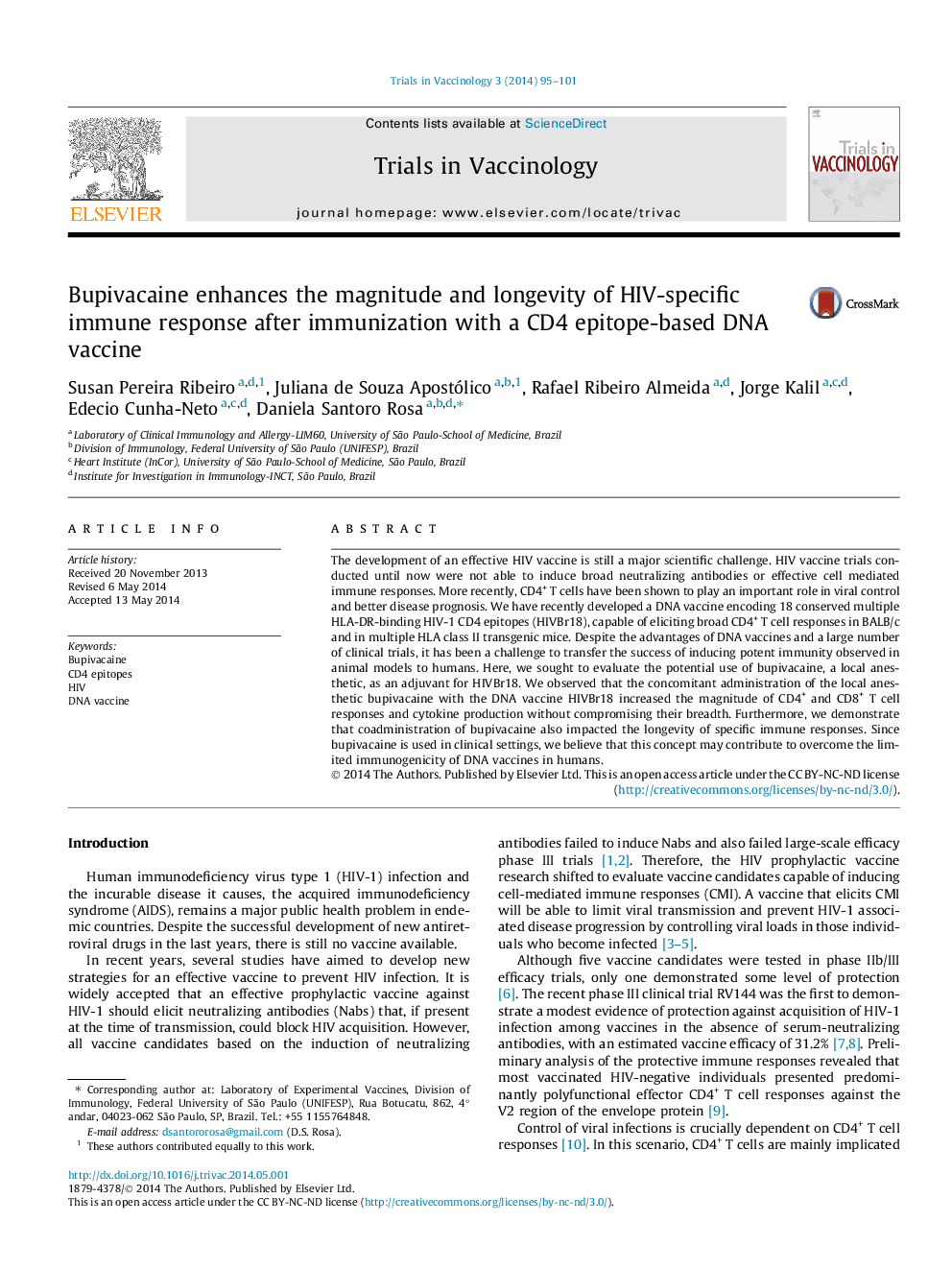| Article ID | Journal | Published Year | Pages | File Type |
|---|---|---|---|---|
| 2474412 | Trials in Vaccinology | 2014 | 7 Pages |
The development of an effective HIV vaccine is still a major scientific challenge. HIV vaccine trials conducted until now were not able to induce broad neutralizing antibodies or effective cell mediated immune responses. More recently, CD4+ T cells have been shown to play an important role in viral control and better disease prognosis. We have recently developed a DNA vaccine encoding 18 conserved multiple HLA-DR-binding HIV-1 CD4 epitopes (HIVBr18), capable of eliciting broad CD4+ T cell responses in BALB/c and in multiple HLA class II transgenic mice. Despite the advantages of DNA vaccines and a large number of clinical trials, it has been a challenge to transfer the success of inducing potent immunity observed in animal models to humans. Here, we sought to evaluate the potential use of bupivacaine, a local anesthetic, as an adjuvant for HIVBr18. We observed that the concomitant administration of the local anesthetic bupivacaine with the DNA vaccine HIVBr18 increased the magnitude of CD4+ and CD8+ T cell responses and cytokine production without compromising their breadth. Furthermore, we demonstrate that coadministration of bupivacaine also impacted the longevity of specific immune responses. Since bupivacaine is used in clinical settings, we believe that this concept may contribute to overcome the limited immunogenicity of DNA vaccines in humans.
